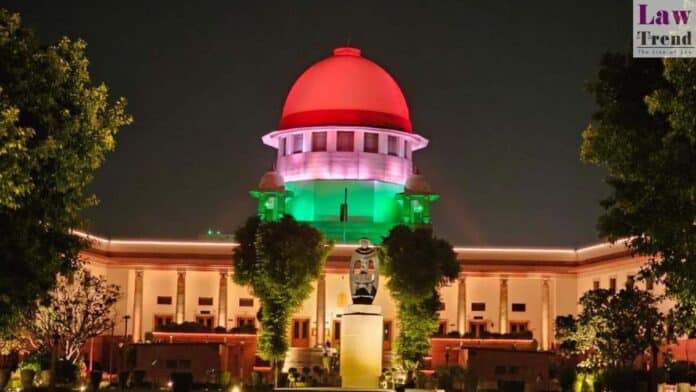The Supreme Court Monday told the petitioners challenging the Patna High Court order giving the go-ahead to the Bihar government for a caste survey that it will not stay the exercise unless they made out a prima facie case against it.
The top court also allowed Solicitor General Tushar Mehta, representing the Centre, to file its response on the issue within seven days after he said the survey could have some consequences.
“We are not this way or that way. But this exercise may have some consequences and hence we would like to file our reply,”
Mehta said but did not elaborate on the consequences the contentious exercise could possibly have.
A bench of Justices Sanjiv Khanna and SVN Bhatti, which is hearing a batch of pleas filed by various NGOs and individuals challenging the August 1 verdict of the high court, adjourned the proceedings at Mehta’s request.
Senior advocate Mukul Rohatgi, appearing for one of the petitioners, sought the court’s direction restraining the state government from publishing the data.
“You see, there are two things. One is collection of data, the exercise which is over, and the second is analysis of data, which has been collected during the survey. The second part is more difficult and problematic. Unless you (petitioners) are able to make out a prima facie case, we are not going to stay anything,” the bench said.
It added that the Bihar government had assured during the last hearing that it is not going to publish the data.
When Rohatgi insisted on a restraining order to the Bihar government, the bench said, “There is already a judgement in favour of the state. It’s not that easy. Unless a prima facie case is made out, we are not going to stay it.”
Senior advocate Shyam Divan, appearing for the Bihar government, pleaded that nothing should be recorded in the order and there should not be any restraint on the state.
“The matter was listed today for hearing further arguments. We have already heard senior advocate CS Vaidyanathan for nearly 20 minutes on Friday,” the bench said, and posted the matter for resumed hearing on August 28, after Solicitor General Mehta sought time to file the Centre’s reply.
On August 18, the top court had asked what was the harm if a person provided the details of caste or sub-caste during the caste survey when an individual’s data was not going to be published by the state.
Vaidyanathan, appearing for NGO ‘Youth for Equality’, which is challenging the survey, had submitted that the exercise was an infringement of people’s right to privacy.
The Bihar government had said on Friday the caste survey was completed on August 6 and the data gathered uploaded by August 12. The data, which has been collected during the survey, has been uploaded on the BIJAGA (Bihar Jaati Adharit Ganana) app. It had said the data could be accessed only by government departments.
On August 7, the top court had refused to stay the Patna High Court’s order giving the go-ahead for the caste survey.
Also Read
Besides the pleas filed by NGOs ‘Youth for Equality’ and ‘Ek Soch Ek Paryas’, another petition has been filed by Nalanda resident Akhilesh Kumar, who has contended that the notification issued by the state government for the exercise is against the constitutional mandate. There are some other petitions.
Kumar’s petition says in terms of the constitutional mandate, only the Union government alone is empowered to conduct a census.
The plea, filed through advocate Barun Kumar Sinha, said the entire exercise of conducting a “census” by the Bihar government is without authority and legislative competence, and reeks of malafide.
The high court had said in its 101-page verdict, “We find the action of the state to be perfectly valid, initiated with due competence with the legitimate aim of providing development with justice .”




